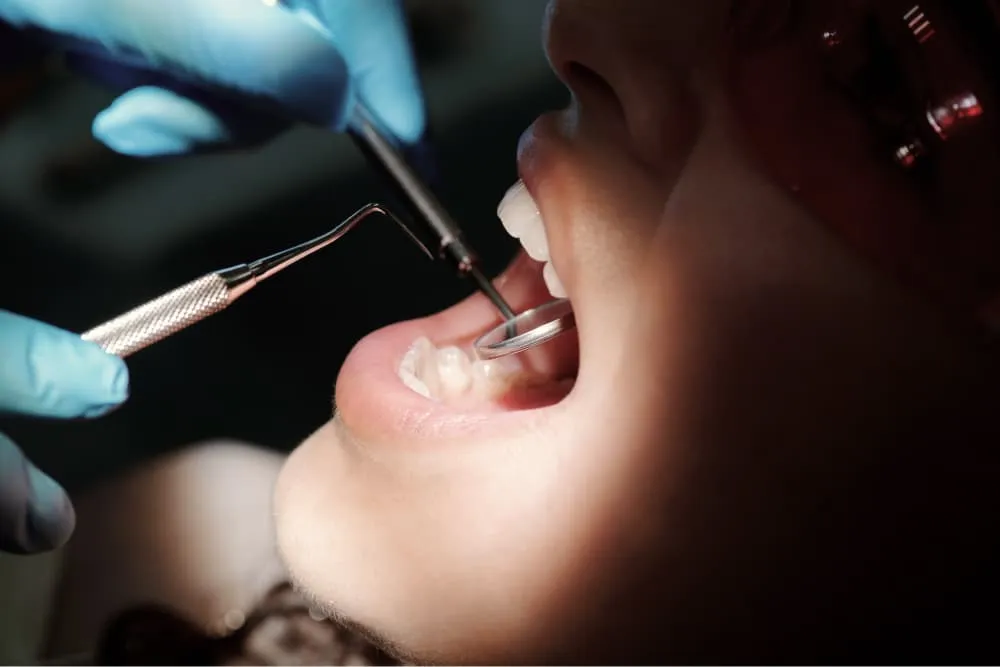Physical dangers of bulimia nervosa
Bulimia nervosa is a mental health disorder, but it manifests in a very physical way. Issues stemming from cycles of binging and purging can impact nearly every system in the body.
Specific bulimia nervosa symptoms will vary from person to person and depend on many factors, including how long someone has struggled with BN and the type of compensatory behaviors they use to purge—i.e., excessive exercise vs. self-induced vomiting, etc.
But overall, some common bulimia symptoms can cause physical danger or discomfort.
Oral cavity
Bulimia nervosa can lead to various
oral health issues, particularly for those who utilize self-induced vomiting.
This coping behavior repeatedly exposes much of the oral cavity to gastric acid, which can lead to dental erosion as early as six months after the onset of the behavior. Continued acid exposure can also lead to gingivitis and periodontal disease.
3Additionally, the oral cavity may become susceptible to any of the following conditions:
3- Tooth hypersensitivity
- Dental caries
- Xerostomia—dry mouth
- Orange-yellow palate
- Hemorrhagic lesions
Gastrointestinal
Frequent vomiting can
damage the gastrointestinal tract as well. The trauma of the action and exposure to gastric acids in the esophagus can eventually lead to a condition known as Barrett’s esophagus. This condition is marked by a change to the mucosal lining of the esophagus and is a known risk factor for esophageal carcinoma.
4Other physical dangers of bulimia that can develop in the esophagus include Mallory-Weiss syndrome and Boerhaave syndrome.
Mallory-Weiss syndrome describes tears in the esophageal lining, which can be marked by blood in the vomit. While these tears can heal on their own, a person must stop purging in this way to give the organ time to repair itself. Boerhaave syndrome, although rare, is a severe rupture of the esophagus, causing upper gastrointestinal bleeding, which requires surgery to stop.
3Other gastrointestinal complications that result from bulimia nervosa include:
3- Abdominal pain and bloating
- Gastric dilation
- Diarrhea and malabsorption
- Rectal prolapse
- Constipation
- Pancreatitis
- Loss of gag reflex
Cardiac
Purging behaviors can also bring on a range of cardiac issues, mainly by causing electrolyte imbalances, which can severely impact the function of the heart.Its potential effect on the heart is one of the biggest
physical dangers of bulimia. Any of the following heart health dangers may develop with BN:
3- Resting and exertional sinus tachycardia: Irregular heartbeat characterized by faster than normal heartbeat.
- Hypotension: Blood pressure much lower than expected.
- Orthostasis: Low blood pressure that occurs when standing.
- Palpitations: Rapid, strong, or irregular heartbeat brought about through agitation, exertion, or illness.
- Cardiac edema: The heart’s left ventricle is unable to pump out enough blood received from the lungs, causing the heart to swell.
- Torsades de pointes: Ventricular tachycardia, meaning that there is an irregular rhythm in which the lower chamber of the heart beats too fast to pump blood well, and the body doesn’t receive enough oxygenated blood (sometimes fatal).
Heart health concerns can be especially high for those who use certain medicines or other substances to help induce vomiting. Depending on the mixture, these substances can lead to other potential dangers like congestive heart failure, ventricular arrhythmias, and sudden cardiac death.
3of gag reflex
Mental health dangers of bulimia nervosa
While bulimia nervosa heavily impacts the body, it resides in the mind. And the mental health issues caused by BN can be equally as dangerous as their physical impacts.
Like other eating disorders such as anorexia nervosa (AN) and binge eating disorder (BED), bulimia nervosa has a high rate of comorbidity (co-occurrence) with other mental health disorders, including anxiety disorders of several kinds, major depressive disorder, and substance use disorder.1
These additional issues can be challenging to deal with on their own. Still, together, they can create even more mental health dangers of BN, making someone more susceptible to social isolation, which can contribute to these mental health conditions getting even worse. Sadly, people with bulimia have been found to have higher rates of both suicide attempts and suicidal ideation than those without eating disorders.2
That BN is so frequently intertwined with these other medical complications is why it's imperative for someone struggling with the condition to not only heal their physical body but also work with a mental health professional to ensure they can reach a better place in their mind and heart.
Finding help for bulimia nervosa
Bulimia nervosa is a dangerous condition, but it doesn't have to be a lifelong struggle. Many treatments and therapies have been shown to help people overcome both the mental and physical dangers of this illness.
Within Health: Remote treatment options
With a team of multidisciplinary experts, we strive to address the various issues that may be driving someone's eating disorder and work to help our patients how they need it, creating individual treatment plans for each person based on their specific needs.
Our entire program can be followed from home through our app and website, and meals and medical equipment are delivered directly to you.
Get help today If you or a loved one are struggling with bulimia nervosa or another eating disorder, it's essential to reach out for help, regardless of where you look. It's often the first step toward a healthier and happier future.



















































